Page 17 • (1,906 results in 0.047 seconds)
-
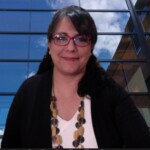
Professor of Hispanic and Latino Studies | Global & Cultural Studies | urdangga@plu.edu | 253-535-7240
) 2nd International Symposium of the Southern Cone Section, Latin American Studies Association, Memoria de género en el Uruguay: el cuerpo como bisemia, Montevideo, Uruguay (July 19-22, 2017) 34th International Congress of the Latin American Studies Association, Uruguayan Memory on Screen, New York (May 27-30, 2016) 113th Annual Conference of the Pacific Ancient and Modern Language Association, The Consumption of Chinese Identity Through Argentinian Film, Portland, OR (November 6-8, 2015) 11th
-
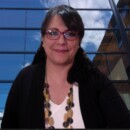
Professor of Hispanic and Latino Studies | Holocaust and Genocide Studies Programs | urdangga@plu.edu | 253-535-7240
Cone Section, Latin American Studies Association, Memoria de género en el Uruguay: el cuerpo como bisemia, Montevideo, Uruguay (July 19-22, 2017) 34th International Congress of the Latin American Studies Association, Uruguayan Memory on Screen, New York (May 27-30, 2016) 113th Annual Conference of the Pacific Ancient and Modern Language Association, The Consumption of Chinese Identity Through Argentinian Film, Portland, OR (November 6-8, 2015) 11th Congreso del Instituto Internacional de Literatura
-
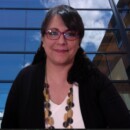
Professor of Hispanic and Latino Studies | Hispanic and Latino Studies | urdangga@plu.edu | 253-535-7240
Cone Section, Latin American Studies Association, Memoria de género en el Uruguay: el cuerpo como bisemia, Montevideo, Uruguay (July 19-22, 2017) 34th International Congress of the Latin American Studies Association, Uruguayan Memory on Screen, New York (May 27-30, 2016) 113th Annual Conference of the Pacific Ancient and Modern Language Association, The Consumption of Chinese Identity Through Argentinian Film, Portland, OR (November 6-8, 2015) 11th Congreso del Instituto Internacional de Literatura
-
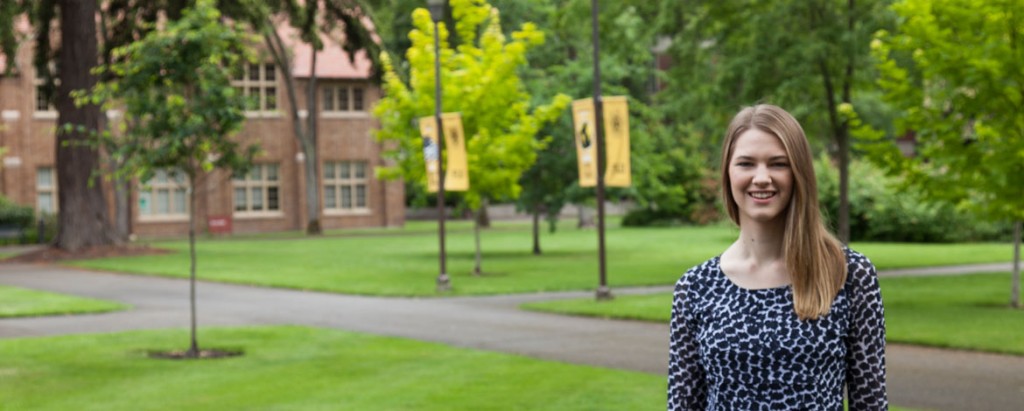
TACOMA, WASH. (Sept. 20, 2016)- This summer, Taylor Bozich ’17 affirmed what she long assumed to be true about humanitarian work — it isn’t easy. She also reaffirmed that’s exactly the kind of work she wants to do after graduating from Pacific Lutheran University. Bozich…
pool,” St. Clair said. “But the students who do this are ready for it.” Award amounts vary. The highest so far has been $3,500. The lowest hovered around $700. Sometimes three awards are given, other times only one. The work is often done abroad, but domestic opportunities are acceptable so long as they have an international scope. Applications may be accepted as early as the fall, but all are due by March 10. “It’s good for students to start planning early,” St. Clair said. A primary goal of the
-
The Press is named in honor of T. Leslie Elliott, a retired editor and bookseller who in 1974 began teaching a course in the English Department entitled “The World of the Book.
Founded in 1982, the Elliott Press is a hands-on workshop for students in PLU’s Publishing & Printing Arts (PPA) Program and for others interested in the history and artistry of the printed word. Students in the Elliott Press focus on traditional typesetting, printing, and bookbinding techniques as they create broadsides, artist books, and ephemera. But with the evolution of technology and aesthetics, some students also choose to use modern graphic design techniques in their work. Work by
-
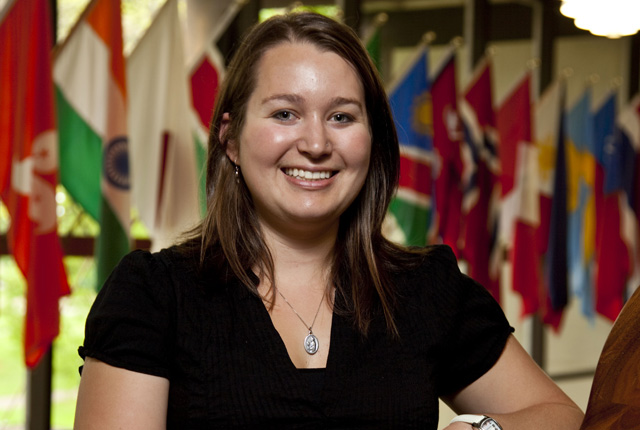
Nicolette Paso ’09 is now studying at Emory University for her master’s degree in divinity. Nicolette Paso: A journey of discovery By Barbara Clements For Nicolette Paso ’09, there was never really a choice. “I did not choose to be a religion major; religion grasped…
] Paul Tillich.” Paso graduated with a degree in religion and German, and after spending some time working in downtown Tacoma at a church, left last year to Germany on a Fulbright Scholarship to work with Armin Kohnle, director of the Institute of Church History at the University of Leipzig. With Kohnle, Paso studied “common chest” ordinances in the early reformation period. “Common chest” literally refers to a locked box where donations where kept for the poor in a church. “It was basically early
-
I first met Claire in 2003 when she was a student in my course on the history of early Christianity (50-600 C.E.).
Does Anyone Oppose Charity?I first met Claire in 2003 when she was a student in my course on the history of early Christianity (50-600 C.E.). She was married, a mother, and worked twenty hours a week, in addition to carrying a full load of courses at PLU. One claim I make in the course is that early Christian communities promoted social initiatives that benefitted the hungry, the impoverished, women, children, and the chronically sick and that, from a sociological perspective, these initiatives
-
Dr. Michael Zbaraschuk, a fifth-generation Washingtonian, returns to PLU from the University of Washington Tacoma, where he was a lecturer in the Politics, Philosophy and Economics program of the
co-edited (with Daniel Peterson of Seattle University) a volume on radical theology entitled Resurrecting the Death of God: The Past, Present, and Future of Radical Theology, and is preparing another work, based on his dissertation and tentatively entitled Spirit in the World: Providence as Process-Historical Liberation, for publication by Wipf & Stock. His teaching interests include religious pluralism, Buddhism in America, and the varieties of Christian theological expression. Dr. Zbaraschuk
-
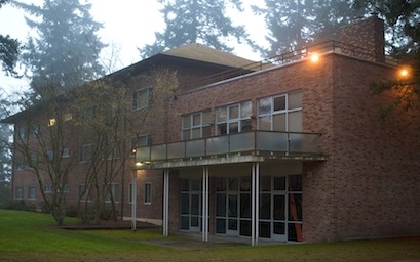
Hong Hall: Speaking the language of community (in French, or Chinese, or whatever) Just because you live in Hong International Hall doesn’t mean you have to be fluent, or even conversational, in a foreign language. But it does help to have an interest. After all,…
March 19, 2009 Hong Hall: Speaking the language of community (in French, or Chinese, or whatever) Just because you live in Hong International Hall doesn’t mean you have to be fluent, or even conversational, in a foreign language. But it does help to have an interest. After all, most of your fellow hallmates will be talking almost exclusively in a foreign language as they pass each other in the hall. Michael Engh, a junior and resident assistant, lives in the Spanish wing. He tries to speak
-
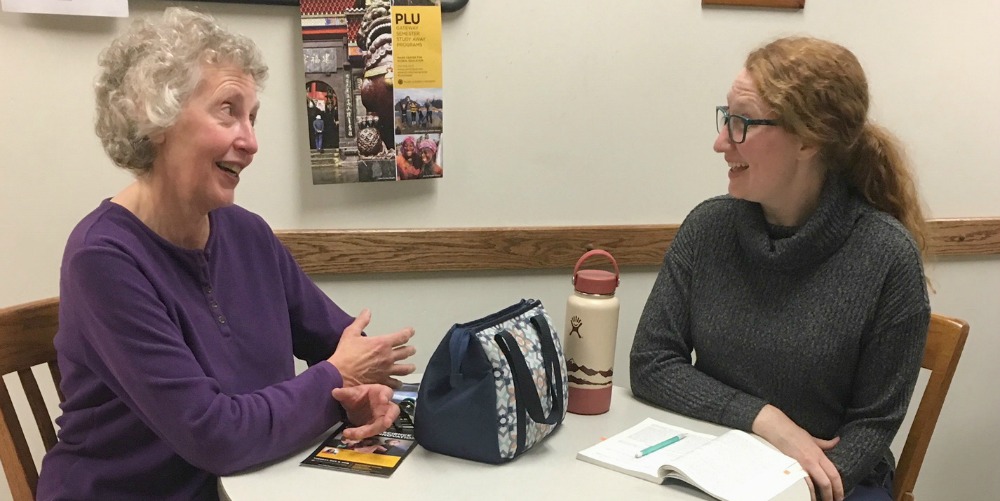
One smoky August afternoon Dr Beth Kraig and I decided to beat the heat and take shelter in the cooling confines of the University of Washington, Tacoma library, to have a cheery chat about plagues. We thought this would be a fun topic to discuss,…
wandered a long way from our original point of departure – history books, plagues, and zombie apocalypses! Though in a way, we found we had actually been answering our own question in a roundabout (typically historical) way, by following the thought-trail of why we are drawn to the topics we find ourselves researching and teaching about. I guess I’ll just have to ask my Early Modern Europe students why they think the Bubonic Plague of the 14th century still has relevance for them today. Read Previous
Do you have any feedback for us? If so, feel free to use our Feedback Form.


